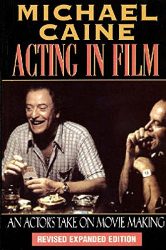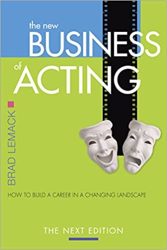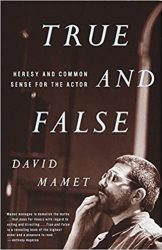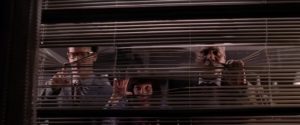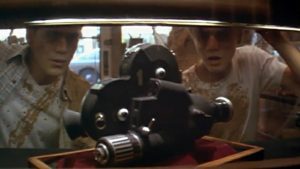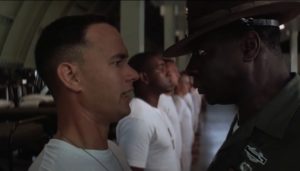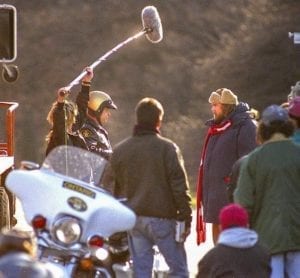
When you’re thinking of acting part-time, you’re probably asking, “Can I have a job and still pursue acting?” The answer depends on what sorts of things you want to act in (movies vs. commercials, etc.), because different things have different availability requirements.
Generally, if you want to act in famous films/TV shows, you need daytime availability on unpredictable dates, which is hard with a day job. You can act part-time with commercials, reality shows, and independent film/theatre, because they are often done on weekends/evenings with more advance notice.
The details behind the reasons for these availability requirements as well as differences between those types of acting jobs are described below, with some personal examples.
Acting in unionized film and television productions
Most film and television productions are unionized and, as such, auditions are held during business hours (from 9:00 to 5:00, though usually it’s more like 10:00 to 3:00). As a result, if you had a day job you can see how this could get in the way. One of the big exceptions to this is reality shows because they tend to be non-unionized but more on that later.
Furthermore, most productions will film all day and night for days on end and not give you a solid schedule until very close to the day you are required on set.
For example, suppose you book a part in a TV show. Before they offer you that part, they will insist that you make yourself available for up to a month or longer. Even if you’re there for a day. Then they send you a “bookable” date (that is something you can put down in your calendar like it’s an appointment) but that bookable date can unexpectedly change as well. You’re at the whim and call of the production if you book a role.

Let me give you a personal example.
- I booked a “guest actor” role (which is about five lines or less) for a TV show on a national network. When I was offered the part, they said that filming (my day on set) would be anytime between a 6-week period. I had to make sure that I was available at any time within that time.
- A few weeks later, I got a message that said you will be filming on this date, at this time and the subject of the email was “bookable” meaning I could put it into my calendar as a confirmed appointment.
- A week before I had to film, however, they changed all the dates and now I was on hold for some time over the next two weeks. If I had a normal job with a regular schedule, you can see how this might have caused some problems. I would have taken the day off work (for the bookable date) and then, out of nowhere, two days before I would have had to go back to work and say that actually I’m going to work that day but I might have to take another day off at some point in the next two weeks. Hence awkward problems.
- I can tell you that, on the new bookable date, I was supposed to have a work trip for a consulting job I had, involving me flying across the country to deliver a 3-hour workshop. I had to cancel that consulting workshop two days in advance because of the new filming date. That was a hard conversation and it essentially lost me that client.
Background acting
A flexible schedule is required even if you just want to be a background actor (also known as an extra), just being in movies as a non-speaking member of some crowd on a street. You’ll need to have your weekday daytimes free because you don’t know when you’ll be called, and you’ll probably also be on set for anywhere between 8 to 14 hours.
Many times, as a background worker, you’ll be called a few days to the night before to see if you’re available to work. And it’s not uncommon to be called the day before so you’ll really need a flexible schedule.
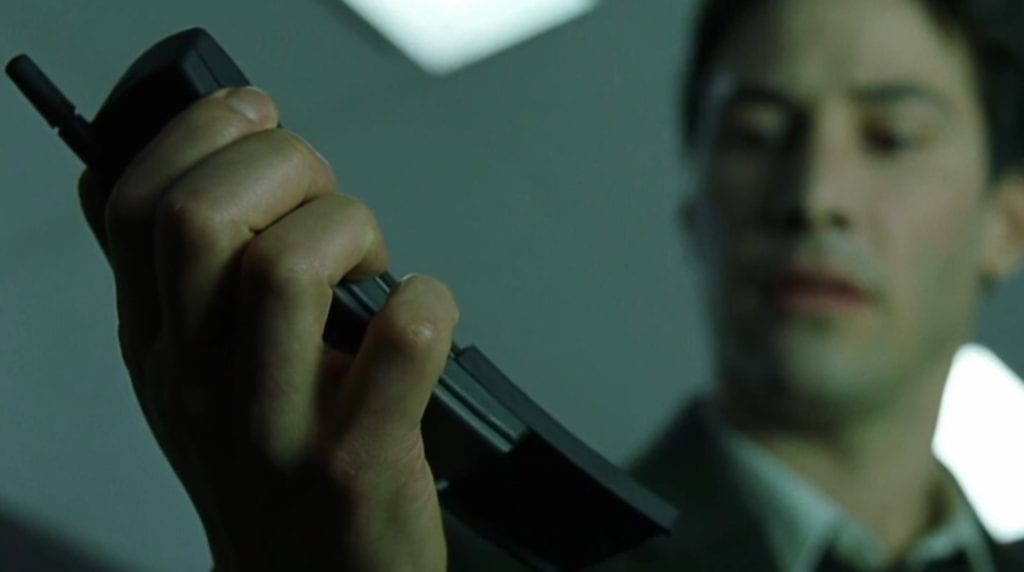
Normally, when you get signed up, they’ll let you know and tell you this kind of stuff so you should know what you’re getting into. If you still go through with it and if you say “no” too many times, they’ll probably just stop calling you or tell you that they’ll take you off the roster because you never seem to be available.
Non-union opportunities to make money
In the non-union world, you are more likely to have auditions and filming during evenings and weekends. You could still cause problems in terms of booking times as you may need to make yourself available for some undetermined amount of time for what might be a couple of hours of work, but it’s still doable.
The question is, can you be non-union and have a career as an actor? The answer, in short, is yes, but it might not be the kind of work you are going for.
You have to think about the type of work that is available for non-union. Very generally (and remember that there are always exceptions) if you’re a non-union actor, you can make money from commercials, reality shows, and game shows. There are other things you can act in too (independent film/theatre) but those other things tend to not make as much money. More info on all these options will be given below.
Getting an agent to reduce competition
Why is it good to have an acting agent? An agent reduces the competition for a role/audition. If something is put onto the public sphere, everyone and their grandma will submit for it. However, if an agent submits you, you might be looking at just 50 people (assuming you’re auditioning for a role in a film or TV show, not in a commercial).
Something to consider about acting part-time is that most agents won’t take on anyone who wants to do acting as a part-time gig or hobby because it can potentially be a waste of their time.
In fact, when you meet an agent, one of the first things they really want to get out of the way is how committed you are. If the audition happens to be in the middle of the day instead of on a weekend, will you be able to do it? The agent has to think that the answer will be yes. Otherwise, if they submit you, and the casting director wants to see you, and you say no, it makes the agent look bad. And if that happens frequently, the agent will drop you.
Commercials
A lot of commercial work is non-union, and you can make money from individual commercials, especially if they’re national commercials. For example, if you booked one U.S. national commercial in a year that could be $50,000 or $60,000 just from that one commercial, because every state pays when it is aired in that state.

Additionally, you can make residuals, meaning money after that commercial has already come out, because maybe in a year they show it in Europe and then a year after that they show it in Australia. Each time that commercial gets shown in a new area you would get a little bit of that money. That is, unless you were bought out, meaning that when you got booked, they gave you some money in addition to your daily rate (they’ll probably just double your daily rate) in exchange for never having to pay you residuals. Buying out is becoming more and more common, especially for small-time commercials.
Competition in commercials
A downside of working in commercials is that there is a lot of competition. That actually reminds me of a really fun story:
When I started acting, I never did commercials. My agent was only “film and television, film and television, film and television.” That was all we did, and the goal was to get onto as many union productions as possible so I could join the union, so I could start auditioning for bigger roles.
When I moved to Toronto from Vancouver, the first agent I got was a much less established agent, so all she could get me were these commercials. A lot of these commercials saw both union and non-union actors because they were more concerned with look versus ability.
I remember going to my first commercial audition and it was such a shock. I was used to walking into an audition room and seeing anywhere between 3 and, at most, 10 people. At most. The first time I walked into a commercial audition, I thought that some huge event was happening because there might have been a hundred people there.
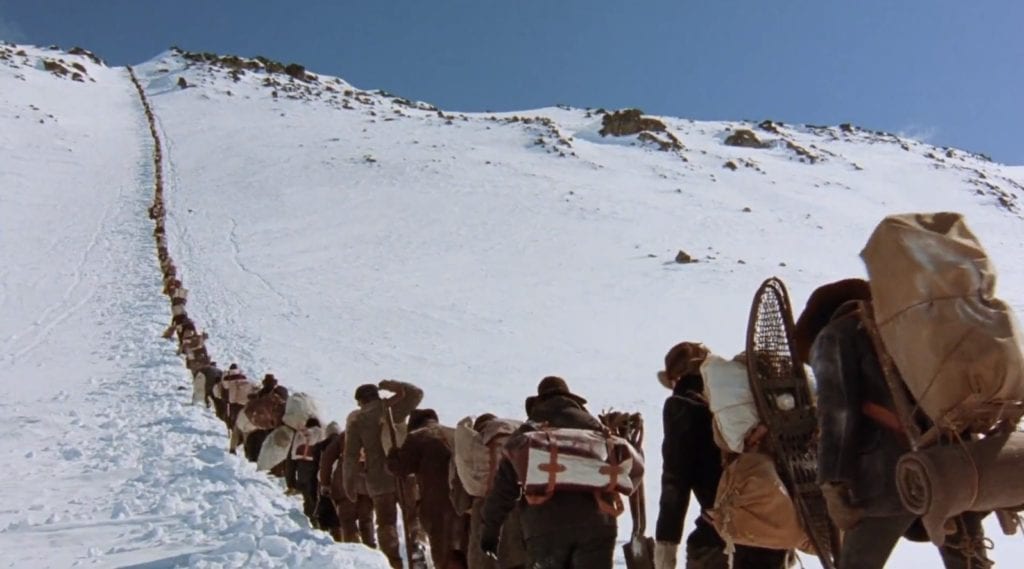
Remember, I was a union actor, but that commercial was open for union and non-union actors. The big thing about commercials is a lot of times they have no idea what they’re looking for it so they’ll see as many people as they can. It was the stereotype of a “cattle call”. That’s the other thing you can look forward to in the commercial world.
Most of the people I know who do non-union commercials (which is the main way you’ll make money as a non-union part-time actor) are all people who are striving for full-time acting work. The only reason they have full-time jobs is because, after a few years of being broke and only making a thousand bucks a year from that one commercial, they start falling back and finding careers to make money, and that career starts taking more and more time.
The good news is that there are a lot of calls for small-time commercials that you can find on Facebook and by joining casting directors’ email lists. This might be exactly what you’re looking for and it might be a good way to get on TV and make an extra couple hundred bucks. In this case, though, remember that if you saw it on Facebook so did thousands of other people.
Reality shows and game shows
Another place where you can make money in the non-union world is reality/game shows, a lot of which tend to be non-union. When they have hosts or when they have contestants in a lot of reality/game shows, there are auditions for those.

They’re hiring actors, models, and kind of anyone who might fit a look or have the right personality. Because there’s no real acting skill involved, they are buying personalities. If you can be in a reality show or game show, that might be a good paycheck. If you can be the host or a part of the “cast” of the show, that can be a good paycheck as well.
Independent productions
Many independent film/theatre auditions, rehearsals, and performances happen in the evenings and weekends, to accommodate people with careers outside of acting. I know several amazing actors who made the decision, at a certain point, that they wanted to have financial security, so they got the career job but still perform regularly in plays.
Independent films and TV shows
If you’re interested in being in movies and TV shows, you can make money but it’s a lot harder because mainstream film and television is majority unionized. That’s slowly changing because a lot more independent films and TV shows are being produced, simply because more people have access to producing these things. That being said, even those independent TV shows and films that might hire non-union to begin with, if their goal is to get onto Netflix or a major television station, will have to convert to unionized if they want to continue in that medium.
If you were to go on Actors Access (which, in the United States, is the main source for finding independent film and television auditions), you’re going to see that a lot of independent films and TV shows offer money … it’s just not that much money. You might have an independent film that is looking for an actor for 5 days and they might pay you, you know, a couple hundred bucks a day. I mean, for some people that could be good; however, that same role in a unionized production might be a couple thousand dollars.
Also, a lot of the independent movies and short films out there can sometimes be submitted to film festivals. Then, if they do really well, they might get a bunch of money to produce more or to take their short film and make it into a feature film. You can see a list of such films that started out as short films here: https://en.m.wikipedia.org/wiki/Category:Features_based_on_short_films
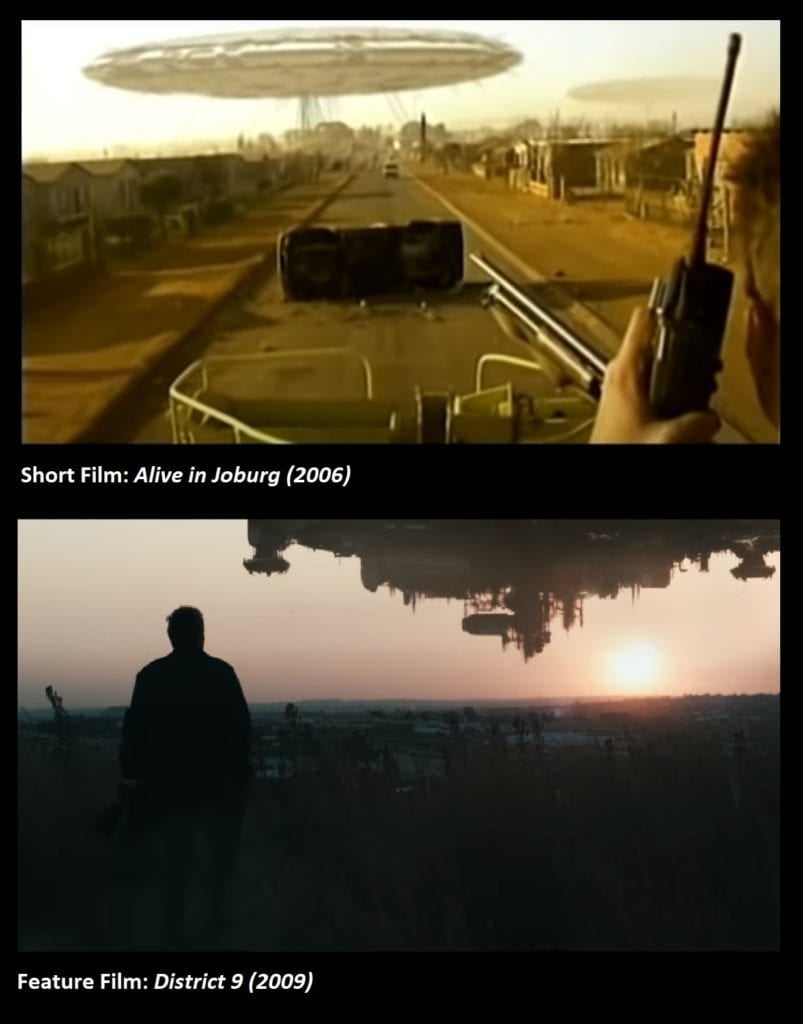
However, once again, once the film goes mainstream, it’ll probably switch to union production. If you’re an actor, this might be a good thing because it’ll put you in the union, if that’s what you’re looking for. That switch actually happened to me: I was in a film, Share (2019), that started off as a short film, won a Sundance contest, got the money to make it into a feature film, and got unionized.
Therefore, you can see that you can be an actor part-time and do occasional non-union things and make a little bit of side money. It could potentially be a side hustle. However, if you really want to make money in the acting world, eventually the time requirements will increase, the pressure to join the union will increase, and you’ll have to make a choice as to whether or not it’s to be a career or just an occasional check.
Can an independent film become famous? Absolutely. And, if it does, you as an actor in that independent film could get a lot of fame and offers to be in other films. That would mean, though, transitioning from a part-time side hustle to a full-time career, which inevitably will lead to having to join the union to be in more mainstream movies.
An example of a great independent film that became famous is Paranormal Activity. Huge success, first in the independent world, and then it became a mainstream film, and led to a franchise … but can you name the actors in it? Did they do anything else? Or was it just the film as a whole that became popular? That’s not to say that actor can’t become famous because of an independent film, it’s just that fame isn’t guaranteed even if the film becomes famous.
Independent theatre
If you decide to focus on independent theatre, there is a potential to make money, but it will rarely be very good money. Most independent theatre actors work for free and count on a percentage of the revenue that the play makes for any kind of money. In other words, you’ll probably have to sign some contract that says you’ll get a certain percentage of the revenue after all the costs.
An independent theatre production might have a two-week run in a small theatre that fits 20 or 30 people, where people are paying ten bucks each. So, you can see that there is the potential to make money but not the potential to make any good money. Regarding the big productions, remember that there’s also a union for theatre actors, so those big productions (and the possibility to make money) wouldn’t be for a part-time actor.
A lot of times, when an actor is working in an independent theatre production, they’re doing it as either a steppingstone to get some exposure (because sometimes agents and casting directors might go watch plays – traditionally that’s how they find new talent) OR because they just really love acting and want to make a little side money from it if they can.
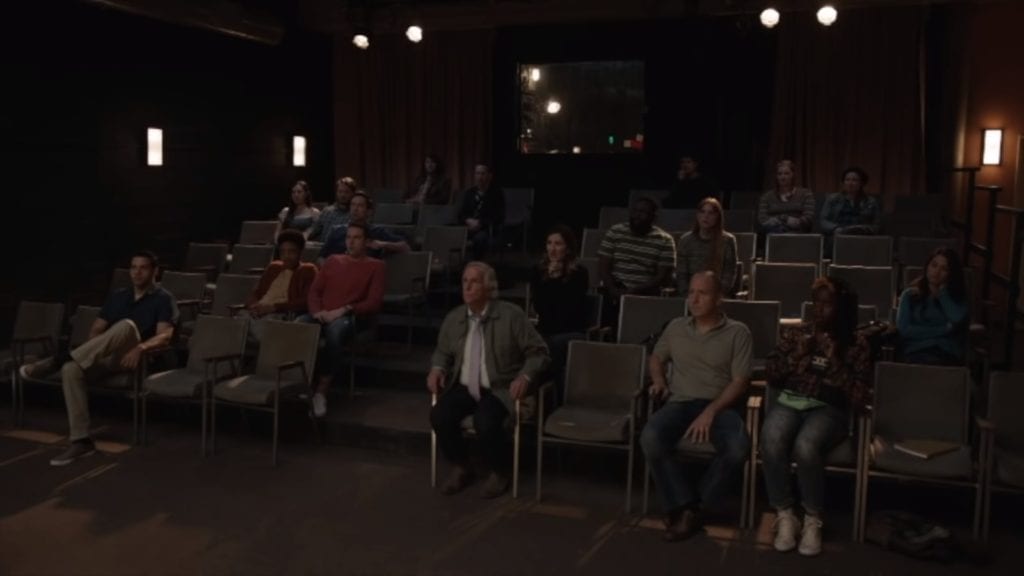
Let me end it like this
If acting is a passion but money is more important, make acting your hobby. Forget about making money at it. Do community theatre, independent films, etc. If your goal is just to get on TV and the acting is just a means to an end, then commercials and auditioning for independent films might be the best way for you to move forward.
Want to make acting your hobby but don’t know where to go to act? Check out our tips here: https://theactorsplace.org/can-acting-be-a-hobby/


